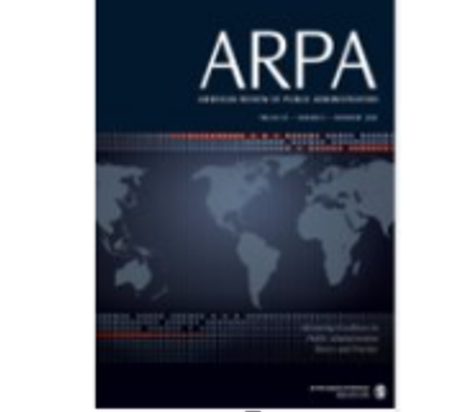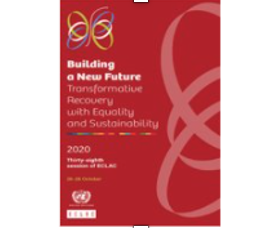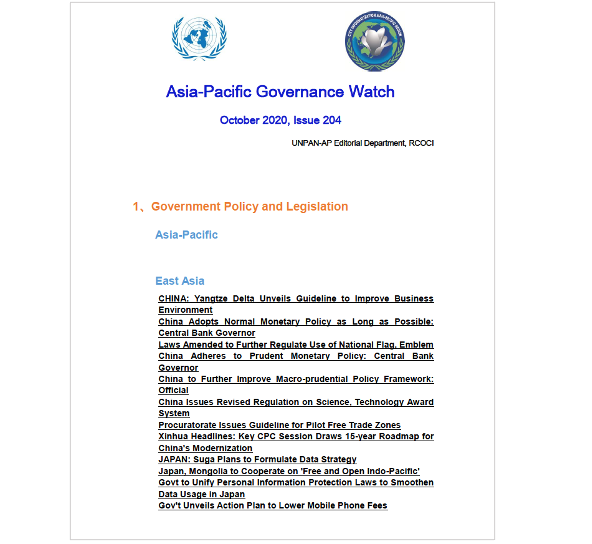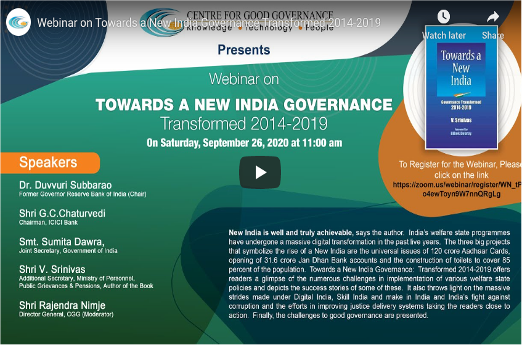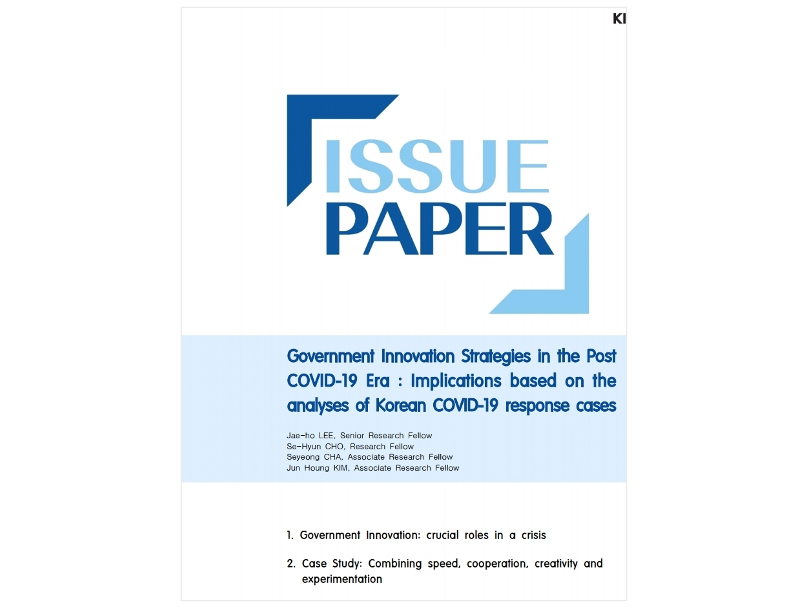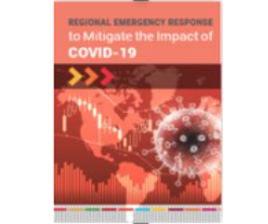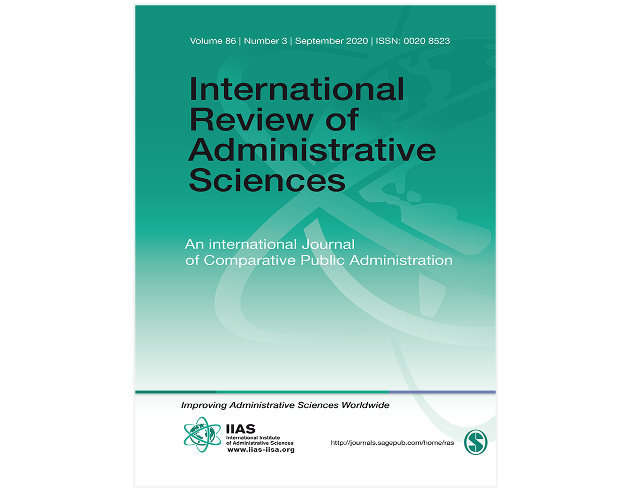Resources
Displaying 145 - 156 of 249
The American Review of Public Administration (ARPA)
| English | Governance and Public Institutions | Americas | Journal | ECLAC
This article argues that public administrators must advance a more equity-based assessment of vulnerabilities in American communities and more risk-based communication strategies. It provides an overview of partisan motivated reasoning, how this has influenced the response to the coronavirus pandemic. Experimental evidence then demonstrates how the framing of the pandemic can influence trust in various public messengers. The coronavirus pandemic…
The Ingredients for Innovations in Small Town Ontario: Leadership& Culture
| English | Local Governance | Americas | Publication | IPAC/IAPC
The majority of services that Canadians receive from government are from local governments, including vital services, such as water, sanitation and public transit (Downer and Foster 2017). As more facets of their life move into the digital realm, Canadians are understandably demanding more digitally-focused servicing from their governments at all levels (Cukier 2019). Municipalities are facing increased expectations to meet this demand and…
Building a New Future: Transformative Recovery with Equality and Sustainability
| English | Leadership and Public Servants’ Capacities | Americas | ECLAC
This document, presented by the Economic Commission for Latin America and the Caribbean (ECLAC) to its member States at its thirty-eighth session, argues that Latin America and the Caribbean is in a position to move towards a “big push for sustainability” through a combination of economic, industrial, social and environmental policies capable of driving a recovery with equality and sustainability and relaunching development in the region.
The…
International Course “The Public Servant as a Trainer. Module: New Learning Scenarios in Public Organizations ”
| English | Local Governance | Americas | Training Course | CLAD
The CLAD School , within the framework of the 2020 Academic Program , together with the National Institute of Public Administration (INAP) of the Republic of Argentina, opens the call to receive applications for the International Course: “The public servant as a trainer. Module: new learning scenarios in public organizations ” , of virtual modality ( INAP Campus ), to be carried out from November 9 to 27, 2020.
Overall objective:
That…
Asia-Pacific Governance Watch, Issue 204
| English | Governance and Public Institutions | Asia and the Pacific | Journal | RCOCI
This report covers various topic of Asia and the Pacific governance, such as 1) government policy and legislation; 2) government system and civil services; 3) management, capacity building and innovation; 4) economic and social development and ICT; 5) public finance; and 6) private sector
File added date: March 2021
Author: RCOCI
Download Publication: English
URL: N/A
Towards A New India Governance Transformed 2014-2019
| English | Governance and Public Institutions | Asia and the Pacific | Webinar | CGG
This webinar offers readers a glimpse of the numerous challenges in implementation of various welfare state policies and depicts the success stories of the reforms in the last five years.
File added date: March 2021
Organized by: CGG
URL: https://www.cgg.gov.in/news/4078/
Capacity Development Webinar on Leveraging Digital Government & Spearheading Innovative Digital Solutions to Address the COVID-19
| English | Digital Government | Global | Webinar | UN DESA/DPIDG
Governments across the Caribbean have been severely impacted by the COVID-19 pandemic, due to their high economic dependence on travel and tourism, which have virtually collapsed as a result of border closures and restrictions. In the context of already high public debt levels and an even more limited fiscal space following the pandemic, Caribbean governments are endeavoring to strengthen public health interventions while limiting the impact of…
Sustainable Development Impact Summit
| English | Innovation in Service Delivery | Global | Webinar | WEF
The COVID-19 crisis wreaked havoc on societies and economies and dealt a major setback to achieving the 2030 Agenda and the Paris Climate Agreement. Putting the world back on a path of sustainable, equitable, and inclusive growth will require more than a global recovery; it will require a Great Reset of social and economic systems.
Taking place in the context of the United Nations General Assembly, the World Economic Forum’s fourth and, for…
Part 2: Good and Best Practices in Inter-Local Cooperation: An International Perspective
| English | Local Governance | Asia and the Pacific | Webinar |
The international webinar on “Good and Best Practices on Inter-Local Cooperation: An International Perspective” invited speakers from Japan, Korea, Taiwan, Thailand, Australia and the Philippines to share experiences on inter-local cooperation. This webinar is in partnership with Asian Association of Public Administration (AAPA), Indonesian Association of Public Administration (IAPA) and Asian Group for Public Administration (AGPA).
File added…
Government Innovation Strategies in the Post COVID-19 Era Implications Based on the Analyses of Korean COVID-19 Response Cases
| English | Governance and Public Institutions | Asia and the Pacific | Publication | KIPA
Government Innovation Strategies in the Post COVID-19 Era : Implications based on the analyses of Korean COVID-19 response cases
1. Government Innovation: crucial roles in a crisis
2. Case Study: Combining speed, cooperation, creativity and experimentation
3. Government innovation strategies in the post COVID-19 era
File added date: March 2021
Author: KIPA
URL:https://www.kipa.re.kr/site/eng/research/selectBasicView.do;jsessionid=…
Socioeconomic Impact of COVID-19: Policy Briefs
| English | Innovation and Service Delivery | Middle East | Policy Brief | ESCWA
A decade marked for accelerated action and delivery towards sustainable development has been disrupted by a global health threat that has severely impacted the Arab region. The focus now is on urgent action to save lives and repair livelihoods. This crisis is a stark reminder of why an efficient and effective public sector is the first line of defence in addressing systemic risks. This perilous pandemic is spreading through the Arab region at a…
International Review of Administrative Sciences, Volume 86 Issue 3
| Chinese | English | French | Governance and Public Institutions | Global | Journal | IIAS
IRAS is the official journal of the International Institute of Administrative Sciences (IIAS), the European Group of Public Administration (EGPA) and the International Association of Schools and Institutes of Administration (IASIA). IRAS is published in four different language editions – English, French, Spanish and Chinese.
In this issue:
Articles Strengthen governability rather than deepen democracy: why local governments introduce…
 مرحباً بكم في الأمم المتحدة
مرحباً بكم في الأمم المتحدة 
